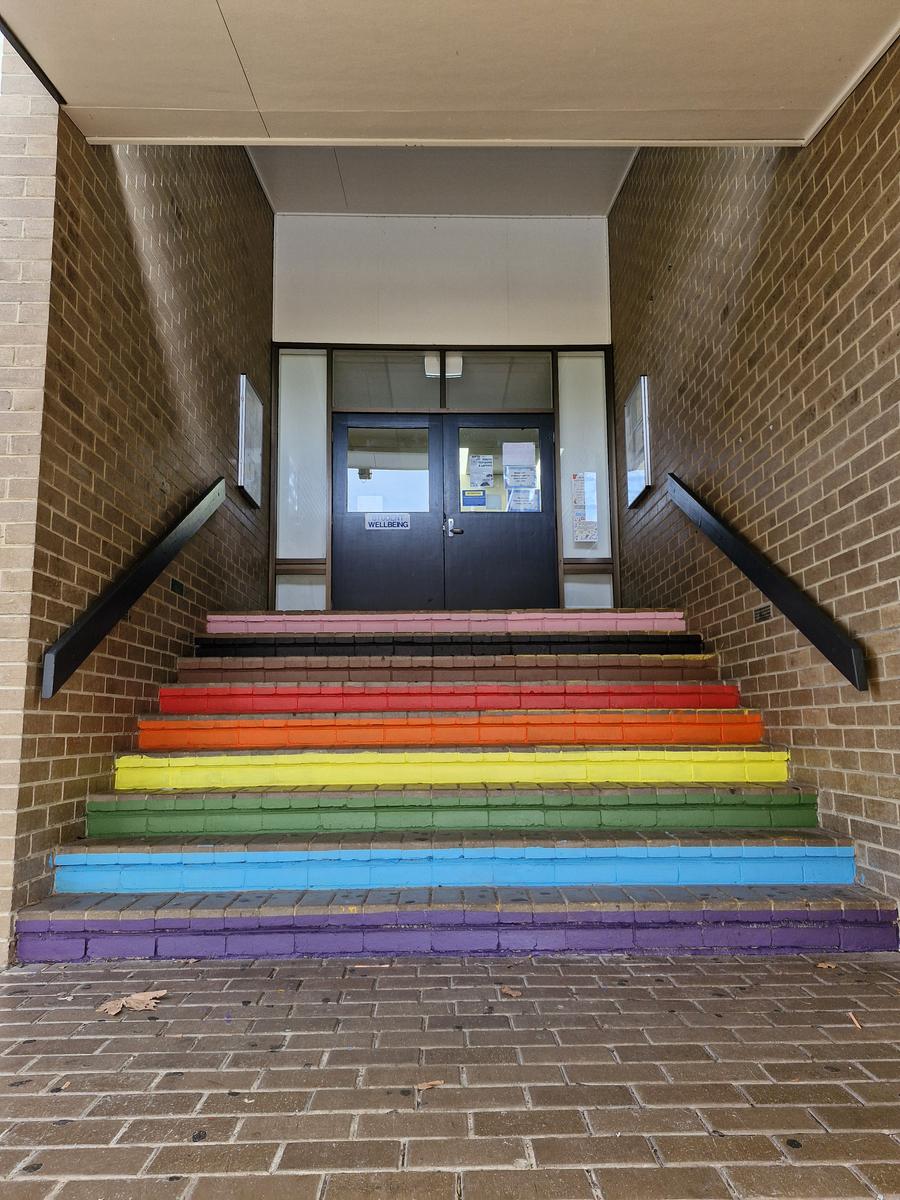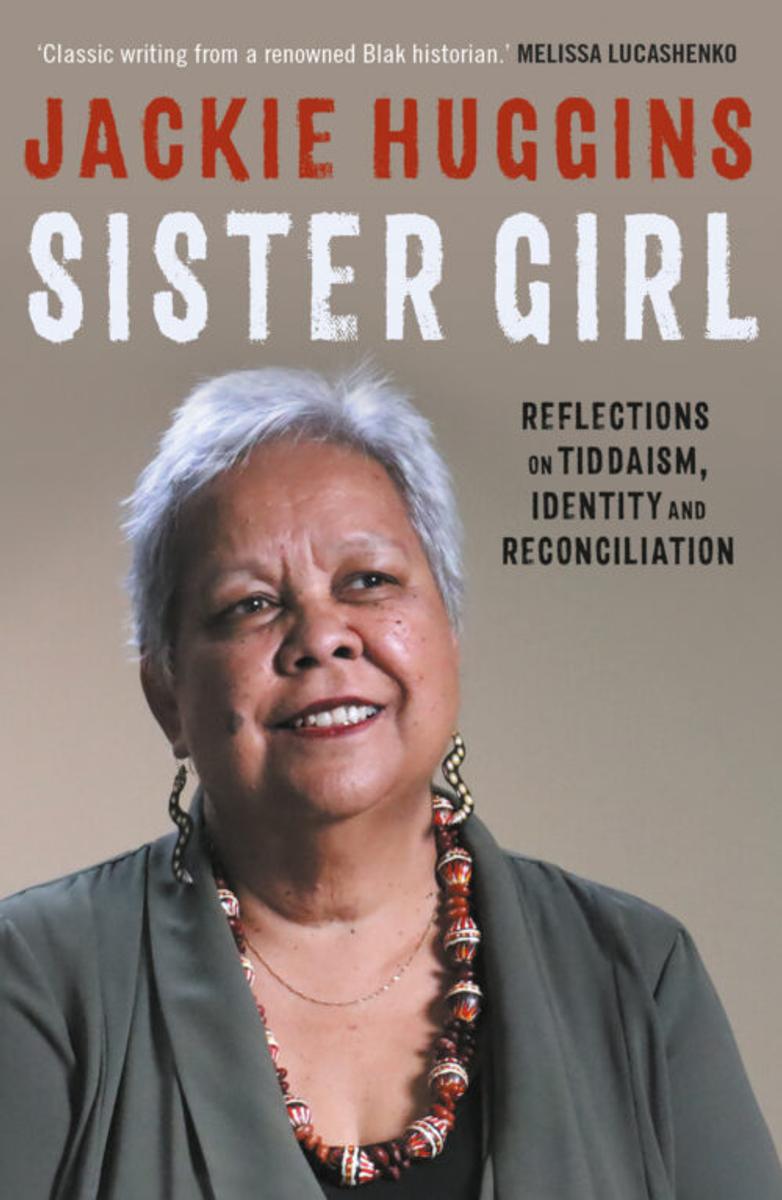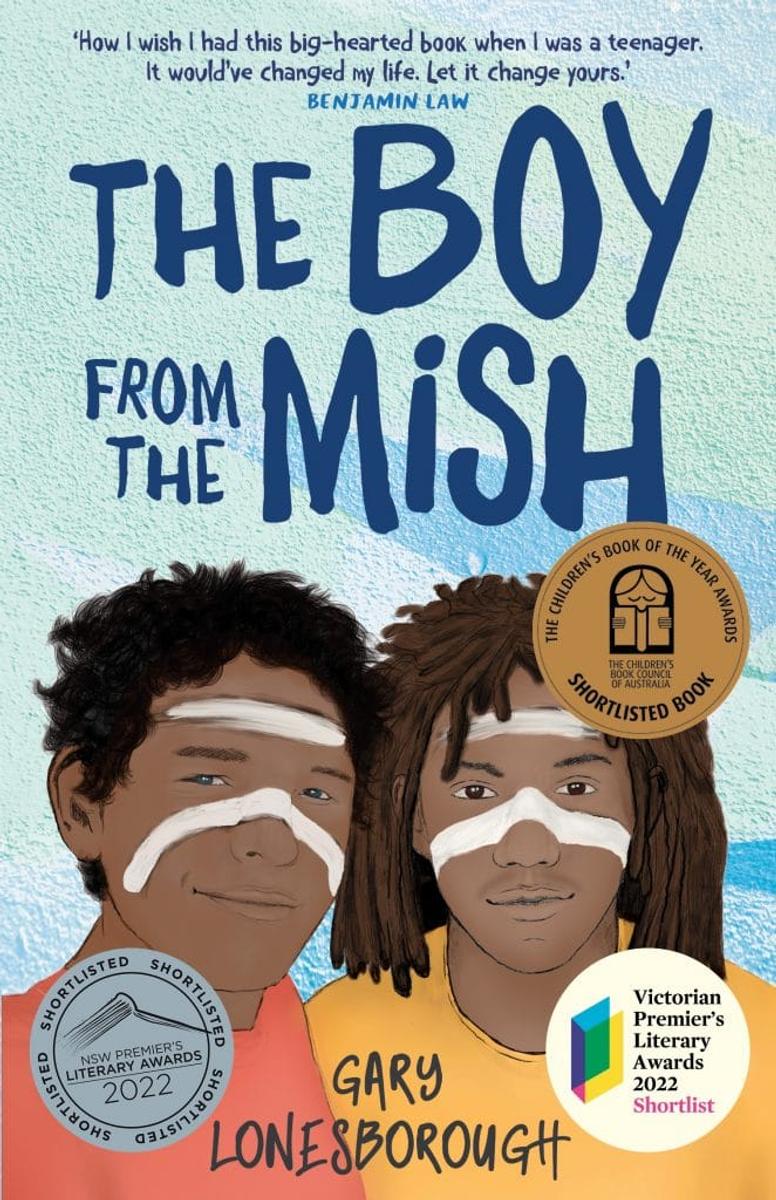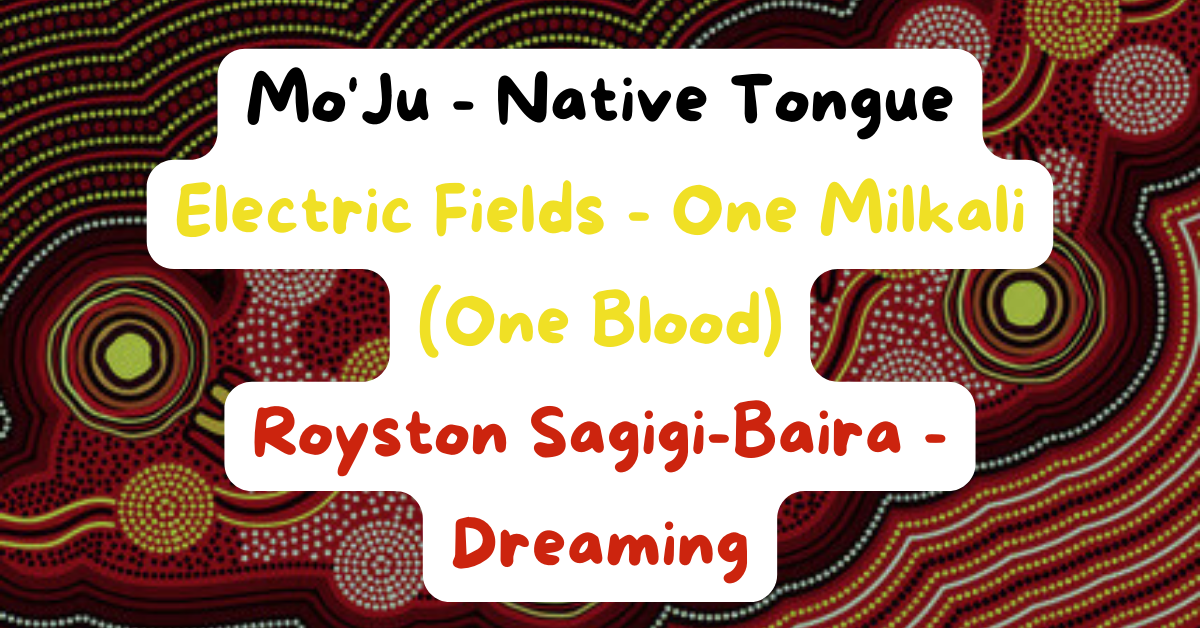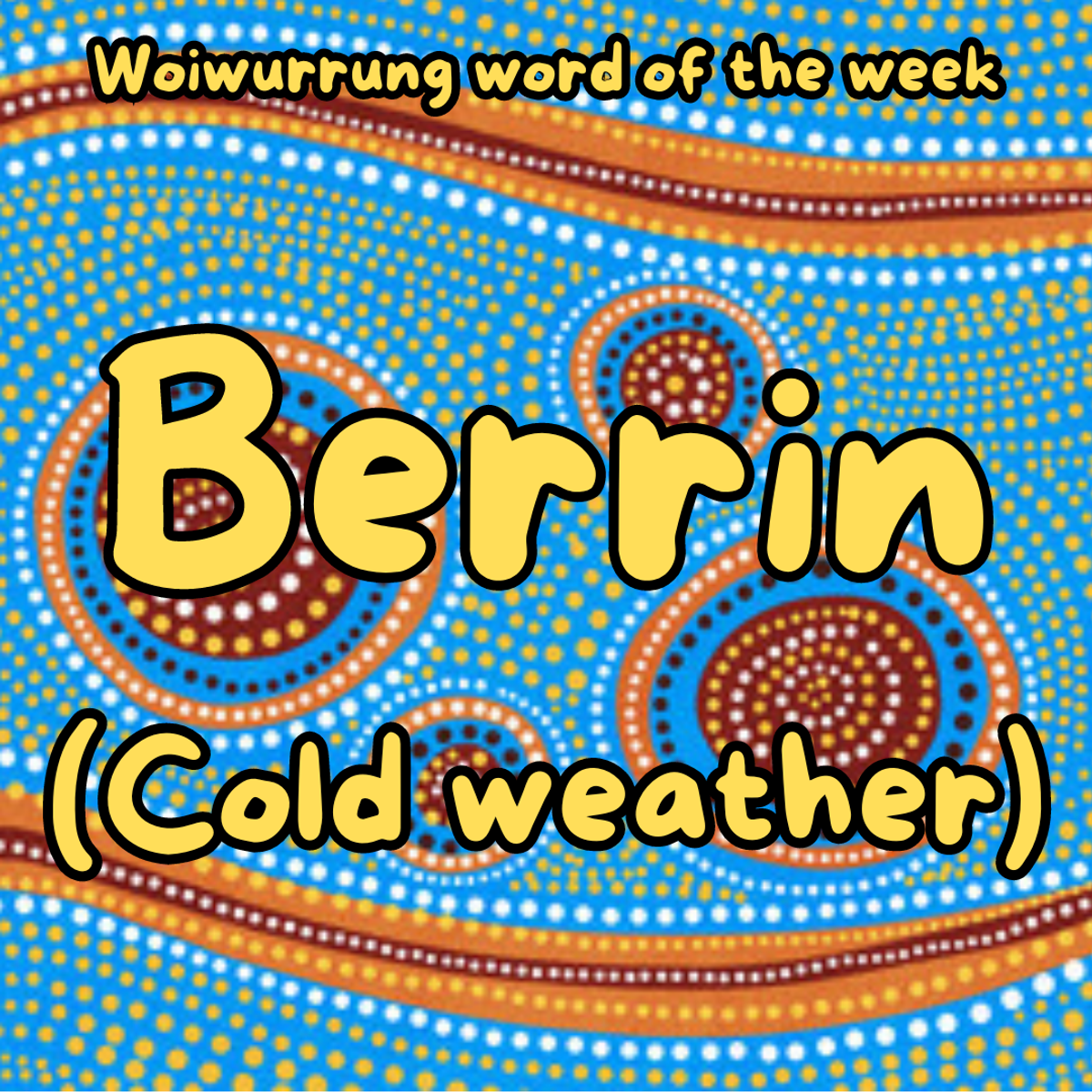Marrung News

Aboriginal and Torres Strait Islander readers are advised that this website may contain images, voices and names of deceased persons.
IDAHOBIT Day
This article has been written with one of our First Nations students at the College.
At school this fortnight we celebrated IDAHOBIT day – The International Day Against Homophobia, Biphobia and Transphobia (May 17) – so we would like to use this newsletter article to talk about the issues facing Australia’s LGBTQIA+ First Nations communities.
Australia's LGBTQIA+ First Nations Aboriginal communities have a really cool mix of cultures that make them stand out in Australia. But it hasn't always been easy for them. Over the years, they've had to deal with a lot of unfair treatment and being left out, just because of who they are and where they come from.
Before colonial settlers arrived in Australia, many Indigenous groups in Australia embraced different gender identities and sexual orientations. But when the colonizers came, they brought along their own rules and ideas about what's "normal." This made it hard for Indigenous LGBTQIA+ folks to be themselves without facing a ton of pressure to fit in.
Even though it's been tough, these awesome communities have never stopped being true to who they are. Nowadays, there's a growing movement where Indigenous groups are embracing and celebrating their diverse identities. They're finding strength in their traditions while also being proud of their modern selves.
But things still aren't perfect. LGBTQIA+ Indigenous Australians still have to deal with higher rates of discrimination, homelessness, and mental health issues, and may be experiencing double the amount of unfairness because of their Indigenous and LGBTQIA+ identities.
Thankfully, there are more and more groups popping up to support and lift up LGBTQIA+ First Nations Aboriginal people. These groups play a crucial role in fostering a sense of belonging, providing vital resources, and advocating for the rights and recognition of First Nations and queer communities. Organisations like Black Rainbow (an organization in Australia that provides advocacy, health resources, and support for Aboriginal and Torres Strait Islander LGBTQ+ people), IndigiLez Leadership and Support Group (a support group based in Brisbane, Australia, that offers support, leadership training, and community for Aboriginal and Torres Strait Islander lesbian, bisexual, and queer women) and 2 Spirits (a program by the Queensland AIDS Council that works to improve the sexual health and wellbeing of Aboriginal and Torres Strait Islander gay men and sistergirls) are doing important work to help out and make sure their voices are heard, and addressing the unique intersectional challenges faced by Indigenous LGBTQ+ people.
And it's not just Indigenous communities taking notice. People all across Australia are starting to realize the importance of listening to Indigenous voices, including those from the LGBTQIA+ community. There's a push to make LGBTQIA+ spaces more inclusive and respectful of Indigenous cultures, like using Indigenous languages and traditions in events.
One step towards showing respect to our First Nations LGBTQIA+ communities that our school has worked on this week is painting our Wellbeing stairs with the Inclusion flag to bring visibility to our diverse LGBTQIA+ community. I think when people of the First Nations LGBTQIA+ community see it they will feel more welcomed in coming and feeling a lot more comfortable.
But the journey toward fairness and acceptance is still ongoing. It's going to take more than just changing laws; it's about really understanding and respecting the different identities and experiences of Australia's Indigenous peoples.
Celebrating First Nations people in the queer community involves honouring the rich tapestry of identities and cultures that have long embraced diverse sexualities and gender expressions, and this is what we hope to do in this newsletter.
Deadly Reads
Jackie Huggins is a Bidjara and Birri Gubba Juru woman, historian and author who has been a strong advocate for Indigenous rights and LGBTQ+ issues in Australia. Jackie has made a lot of amazing books such as "Sister Girl" (1998), a collection of essays which provides insights into the lives of Indigenous women in Australia, blending personal narrative with broader social and political commentary.
Another great book about LGBTQIA+ First Nations issues is The Boy from the Mish by Yuin man Gary Lonesborough, which is set in a rural Australian community, and follows seventeen-year-old Jackson as he explores his identity. Part coming-of-age and part first love, this queer Indigenous Young Adult novel is available to loan from our school library.
Koorie Beats
We understand that song and dance are important aspects of Aboriginal culture and identity, used in storytelling and ceremony for tens of thousands of years, and so hope to use this platform to share some of the Aboriginal and Torres Strait musicians we admire most.
There are many talented LGBTQIA+ First Nations artists who have made significant contributions to Australian music, often blending traditional sounds with contemporary genres. One First Nations musician in the queer community that we love is Zaachariaha Fielding. Zaachariaha is a prominent Australian singer and songwriter from Mimili in far-north South Australia. He is an Indigenous vocal artist who brings a unique blend of contemporary and traditional musical influences through his musical group Electric Fields. He's great in his ability to sing in both English, Pitjantjatjara/Yankunytjatjara, and had the opportunity to recently share this on the global stage by representing Australia at Eurovision, where the yidaki (didgeridoo) was played by Fred Leone on the stage for the first time in Eurovision history.
Other queer First Nations artists that we celebrate include Mo’ju, a nonbinary person of Wiradjuri heritage, and Royston Sagigi-Baira, a queer man of Thanakwith (Aboriginal) and Wagadagam (Torres Strait Islander) heritage who won Australian Idol last year in 2023.
These artists are celebrated for their musical talent and their efforts to bring Indigenous stories, languages, and cultures to a wider audience.
Woiwurrung Word of the Week
If you want to learn more about the Woiwurrung language local to our area, or other languages spoken by First Australians, please check out the 50 Words Project website: https://50words.online/languages
The 50 Words Project is led by the Research Unit for Indigenous Language at the University of Melbourne, and funded by the Duncan Leary Trust for Australian Indigenous Languages, with all words, audio, and video recordings provided by language speakers and included on the website with permission. Australian Indigenous languages have many thousands of words, and this project aims to provide fifty words in Indigenous languages of Australia, with accompanying audio to support pronunciation. The interactive map is intended to be a useful resource for schools and educational organisations to learn 50 words in their local languages, and for the general public to discover the diversity of languages around Australia. For the best experience, the map should be viewed on a computer or tablet.
Local Support Services
Please download the attachment for Knox Network/Victorian Indigenous Support Services and don't hesitate to contact us for further information.
Ashleigh Bibby
Leader of Wellbeing
Nick Elliott
Marrung Leading Teacher

